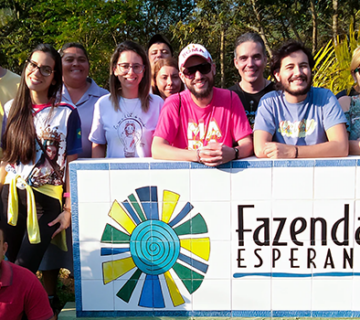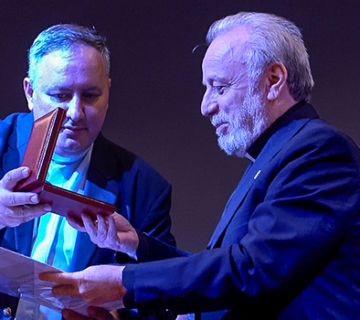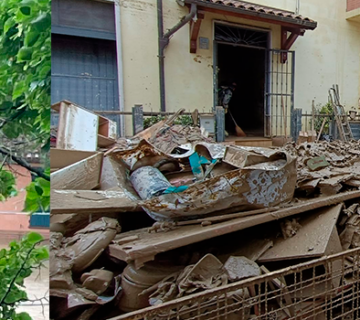 “Existential peripheries”: these two words had particular significance during the two-day seminar held during 21-24 October in Brazil. The seminar was attended by participants from 12 Latin American countries representing 40 social welfare organisations inspired by the Focolare’s charism of unity.
“Existential peripheries”: these two words had particular significance during the two-day seminar held during 21-24 October in Brazil. The seminar was attended by participants from 12 Latin American countries representing 40 social welfare organisations inspired by the Focolare’s charism of unity.
From the exchange of experiences it appeared that the encounter with those on the peripheries, for whom Pope Francis has appealed, seems to have been underway for many years: where drug dealers were sewing death, very often among young people; where children of tender age were spending their lives on the streets; where farmers were being forced to migrate to cities for lack of work, increasing the number of favelas. The stories were deeply moving of those working in many different social organizations under great hardship because of a scarcity of human and material resources.
This led to the need for a permanent network, for an ongoing exchange of experiences, problems and resources. The social organisations from Spanish-speaking lands launched the website www.sumafraternidad.org so this network could spread more widely; also in other expressions of the Focolare that have begun in the fields of economy, politics, education, law, family and youth. Sumafraternidad.org is far more than a simple crowd funding platform, say the creators of the digital support; what we are really aiming at is generating connections that are transformational.
The fraterntiy in action: basis for social cohesion in the 21st century seminar addressed the socio-political landscape of the continent that even until now is plagued with a lack of social cohesion, resulting in exclusion and profound inequality, claims Argentine political scientist Juan Esteban Belderrain. With Uruguayan Susana Nuin from the Communications Commission of the Bishops Conference of Latin America (CELAM), elements of the Church’s social doctrine were examined inasmuch as they relate to the problematic situation of Latin America.
 The transformational potential of the charism of unity rooted in the thinking of Chiara Lubich, refocused on making yourself one, and was described by Brazilian sociologist Vera Araujo. She defined this as the indispensable evangelical method for building relationships; the horizons of fraternity that imposes a removal of inequality; Jesus crucified and forsaken, “who became identified with all the crucifixes of the world and opened new areas of resurrection.” “It is this cry,” said Father Vilson Groh, who has been involved for many years in helping children on the peripheries of society, “that makes us enter into the abandonment of those who are excluded, makes us capable of entering into communion with them, and prevents us from becoming accustomed to social injustices.”
The transformational potential of the charism of unity rooted in the thinking of Chiara Lubich, refocused on making yourself one, and was described by Brazilian sociologist Vera Araujo. She defined this as the indispensable evangelical method for building relationships; the horizons of fraternity that imposes a removal of inequality; Jesus crucified and forsaken, “who became identified with all the crucifixes of the world and opened new areas of resurrection.” “It is this cry,” said Father Vilson Groh, who has been involved for many years in helping children on the peripheries of society, “that makes us enter into the abandonment of those who are excluded, makes us capable of entering into communion with them, and prevents us from becoming accustomed to social injustices.”
Some disturbing questions emerged from the chorus of voices: “Do we take it to be normal that strong social imbalances continue to exist? Have we silenced our own consciences, because others are already directly involved in finding solutions to these dramatic situations?
There was a strong call for collectively assuming social responsibility.


 Italiano
Italiano Español
Español Français
Français Português
Português



No comment